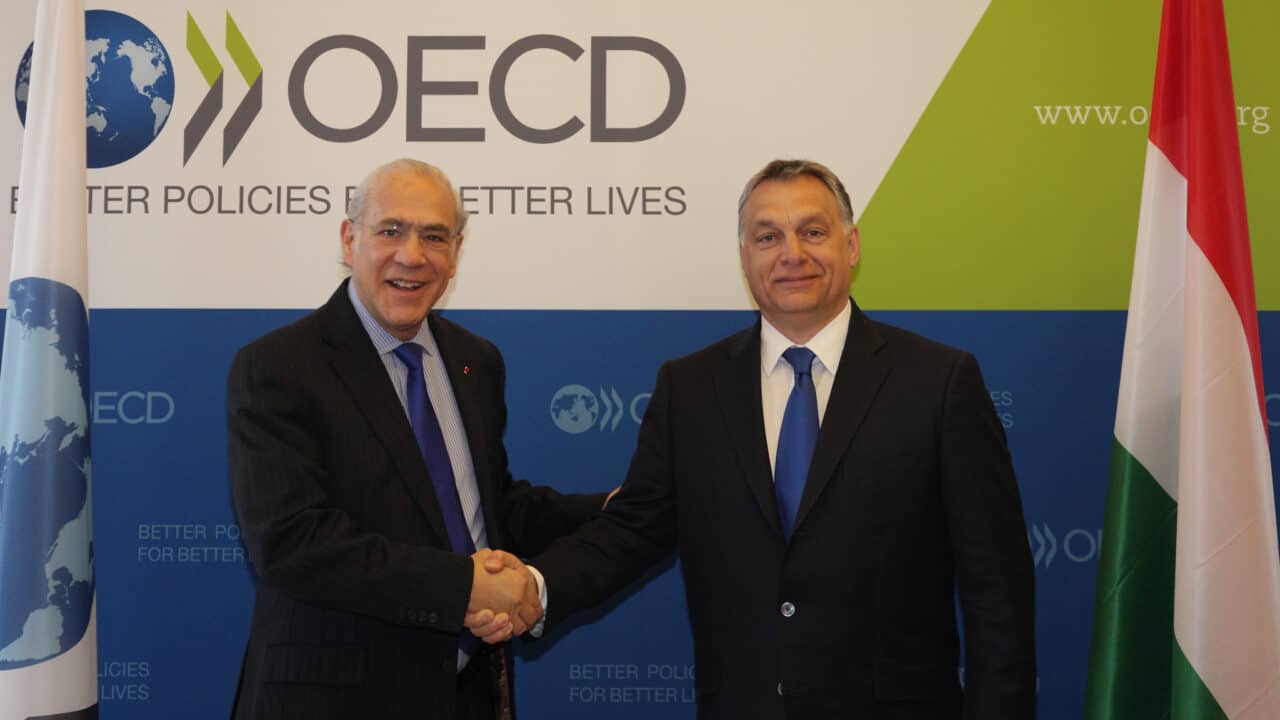 "IMG_25687055293_243d8c2050_k" by OECD is licensed under CC BY 2.0OECD
"IMG_25687055293_243d8c2050_k" by OECD is licensed under CC BY 2.0OECD
Hungary is wise to reject the global minimum tax proposal that would significantly damage the valuable tax competition among countries and would cause undue harm to businesses, workers, and economies around the world.
A global minimum tax would greatly curtail the force of tax competition. This competition between nations offers a critical check on the power of governments and it is vital for ensuring efficient and reasonable levels of taxation.
Grover Norquist, President of Americans for Tax Reform described President Biden’s efforts to impose a global minimum tax as follows:
“Cartels that keep prices, high hurt consumers. Creating a Tax OPEC of governments to avoid tax competition is bad for citizens and taxpayers. Competition drives out self-serving rent-seekers in business and in government. Putting a floor on the cost of government is like putting a floor on the cost of oil or wheat–bad for consumers. Why create a new OPEC jacking up the cost of government rather than oil.”
Why does President Biden not reject this terrible agreement in the same clear way Hungary does?
Under the new Pillar One and Two OECD proposals roughly 65% of the companies paying the new tax are American companies. President Biden is allowing foreign nations to tax US companies to subsidize their spending. If this agreement would be enacted it would be a huge win for Communist China because shifts parts of the US tax base abroad and makes the US less competitive globally – tied to the global minimum tax rate. Lawmakers should reject a global minimum tax that would do nothing to help workers and businesses in a time of high inflation and a weak economy
The proposed minimum tax rate would be particularly detrimental to countries such as Ireland, Bulgaria, and Hungary that currently keep their corporate tax rates at lower, more competitive rates. A global minimum tax also threatens poorer, developing countries that need to maintain high growth rates in order to be lifted out of poverty. Cutting corporate tax rates leads to an increase in investment, productivity, economic growth, output, and ultimately higher standards of living. This global tax agreement is very dangerous, as it increases the tax burden on US and European manufacturers at a time of war and significant challenges to western economies.

